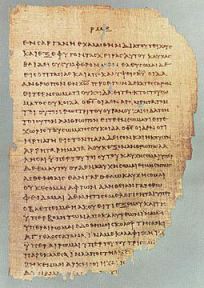According to unitarian Christian Andrews Norton (1786 - 1853), a long time professor at Harvard University and author of several books including the classic A Statement of Reasons for not Believing the Doctrines of Trinitarians concerning the Nature of God and the Person of Christ, what has happened to Christianity since its revelation by God through Jesus and his Apostles is a “monstrous phenomenon.” He explains,
. . . the fundamental truths of religion taught by Christianity became very early connected with human speculations, to which the same importance was gradually attached . . . These speculations spread out and consolidated into systems of theology, presenting aspects equally hostile to reason and to our faith; so hostile, that, for many centuries, a true Christian in belief and heart, earnest to communicate to others the blessings of his faith, would have experienced, anywhere in Christendom, a fate similar to that which his Master suffered among the Jews. . . this [is a] monstrous phenomenon. The false representations of Christianity that have come down to us from less enlightened times have ceased to retain their power over far the larger portion of those individuals who form, for good or evil, the character of the age in which they live. But the reaction of the human intellect and heart against their imposition has as yet had but little tendency to procure the reception of more correct notions of Christianity. On the contrary, the inveterate and enormous errors that have prevailed have so perverted men’s conceptions, have so obscured and perplexed the whole subject, have so stood in the way of all correct knowledge of facts and all just reasoning—there are so few works in Christian theology not at least colored and tainted by them, and they still present such obstacles at every step to a rational investigation of the truth—that the degree of learning, reflection, judgment, freedom from worldly influences, and independence of thought necessary to ascertain for one’s self the true character of Christianity is to be expected from but few. The greater number, consequently, confound the systems that have been substituted for it with Christianity itself and receive them in its stead, or, in rejecting them, reject our faith. The tendency of the age is to the latter result. (A Discourse on The Latest Form of Infidelity, 1839)
In short, the very sad truth is that “Christendom has done away with Christianity without being quite aware of it,” as the Danish theologian and philosopher Søren Kierkegaard (1813 - 1855) wrote—-quite more truly than he knew.
